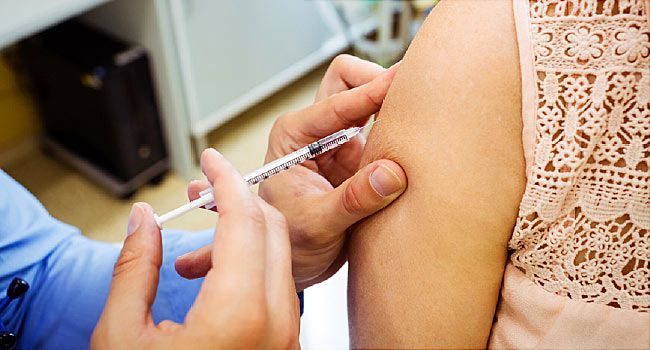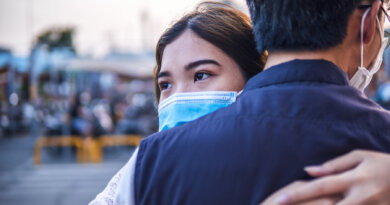Next U.S. Booster Campaign Faces Delays, Lack of Funds
March 27, 2022
The next rollout of COVID-19 booster shots in the U.S. could face delays due to a lack of federal funding and declining interest, according to The Guardian.
“We’re way behind the eight-ball,” Eric Topol, director of the Scripps Research Translational Institute,” told the news outlet.
Many Americans still haven’t received a booster shot, with about half of those who are eligible not yet receiving one. The rollout of the first round of booster shots “just fell off the cliff,” Topol said.
The Biden administration is also struggling to get funding from Congress to pay for ongoing coronavirus initiatives. Earlier this month, a $15 billion funding package for tests, treatments and vaccines was cut from the major spending bill being reviewed by Congress. Although health officials spoke to lawmakers on Wednesday about the need for COVID-19 funding, Republicans said equal cuts must be made elsewhere, according to Politico.
Right now, there is enough funding to give a fourth vaccine dose to immunocompromised people, who already qualify for another shot, and older adults, the White House said on Wednesday. However, a broader booster campaign wouldn’t have enough vaccine supply.
“We’re out of money pretty much for the pandemic spending, which is terrifying because we don’t know what’s coming around the corner,” Katrine Wallace, an epidemiologist at the University of Illinois, told The Guardian.
The lack of funding could affect the rollout of the initial vaccine series in the future, as well as research on updated vaccines and treatments.
“Maybe we will see a new variant that’s escaped all of these, and we need a new vaccine,” Wallace said. “This is going to be an issue.”
The Biden administration plans to offer a second booster of the Pfizer and Moderna vaccine for ages 50 and older, which the FDA could authorize as early as this week. In mid-March, Pfizer asked the FDA to approve a second round of booster shots for ages 65 and up, and Moderna asked for a second booster for ages 18 and older.
About 45% of Americans who are eligible have received a booster shot, according to the latest CDC data, which increases to 67% for ages 65 and older. When the boosters were first approved, they were limited to immunocompromised people and older adults, but they’ve been opened up to ages 12 and older.
The FDA’s independent advisory committee will meet on April 6 to discuss booster authorization policies for the future, particularly in the case of new variants. The group isn’t scheduled to make a vote, The Guardian reported, but will focus on a framework for boosters.
With another potential wave on the horizon due to the contagious BA.2 variant, Topol said vaccination campaigns should become a priority. Vaccines can take weeks to become fully effective, which means that people should get their next shots now.
“It is good that there’s a lull in circulating virus — that’s wonderful,” he said. “This is the time to get protected for the next wave, of which there will be one or two or more.”




